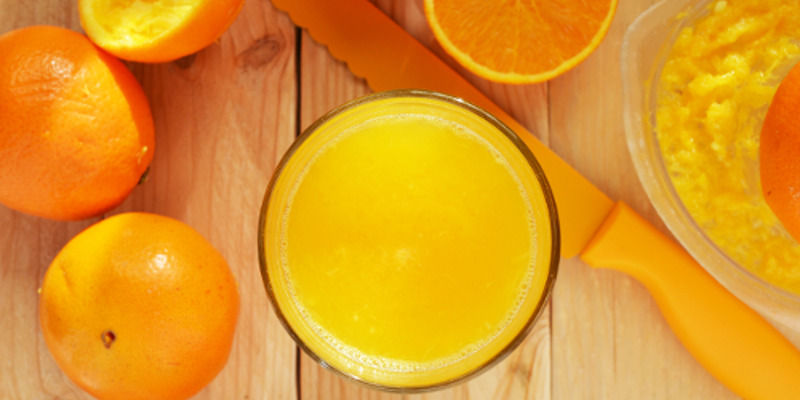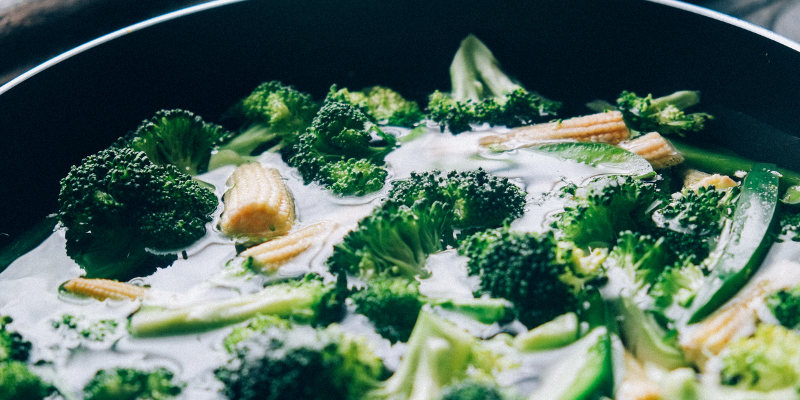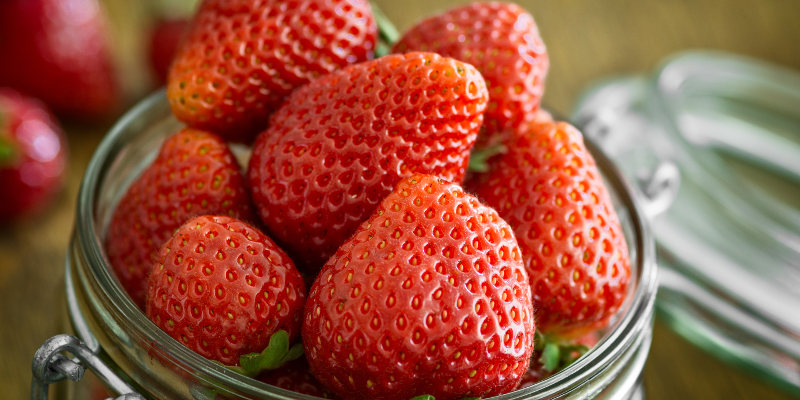Are you having fun?
That might seem like a silly question. You might be thinking “I’m an ostomate - how can I have fun?” However, the two don’t necessarily have to be mutually exclusive. ...

As the weather starts to turn cooler in the Southern Hemisphere and winter approaches, the chance of developing some sniffles or catching a cold or the ‘flu increases. As a nutritionist, my thoughts naturally turn to the nutrients that can help defend against infection and assist the body to stay healthy during this time. Vitamin C, also known as ascorbic acid, is one of the first nutrients that comes to mind. It plays a major role in protecting the body against many major illnesses, and also mobilises the immune system to defend against invading pathogens such as viruses and bacteria.
However, vitamin C is a tricky nutrient for many ostomates to consume in sufficient quantities for optimal health. Humans cannot make vitamin C, and so it must be supplied via the diet. And this is where the challenge for many ostomates begins. Many of the foods that are considered good sources of vitamin C can be difficult for those with an ileostomy or colostomy to eat in large enough quantities to ensure adequate nutrient status is achieved for maximum wellbeing.
Vitamin C is also a water soluble vitamin, which means it is not stored in the body for any great length of time and is easily and regularly excreted. Therefore it needs to be consumed frequently and adequately to avoid a deficiency developing. For ostomates, difficulty with vitamin C intake coupled with ease of excretion means that the possibility of developing a nutrient deficiency is quite high. However, these are not the only challenges.
Vitamin C is found in a range of fruits and vegetables, with the highest concentrations being available from blackcurrant juice, orange juice, red and green chillies, red and green capsicum, Brussel sprouts and broccoli. Vitamin C is found to a lesser but moderate extent in cabbage, cauliflower, grapefruit and grapefruit juice, pawpaw, oranges, strawberries, lemons and cantaloupe. Most meats, legumes, breads and milk products are considered poor sources of vitamin C.
General dietary guidelines recommend 5-6 serves of vegetables and 2 serves of fruit per day, which is sufficient to provide enough vitamin C to meet most healthy people’s needs. It is considered very hard to meet vitamin C requirements without this amount of these foods in the diet. Vegetables may be a more useful source of Vitamin C because they are available for longer periods of the year. However, many of the foods containing vitamin C are not suitable for ostomates to consume frequently or abundantly to meet vitamin C requirements due to increased output or the risk of a blockage. A limited ability to consume foods containing vitamin C will therefore impact on vitamin C status.
The vitamin C content of food is also strongly influenced by a variety of factors, such as season, mode of transportation, storage time, storage conditions and cooking techniques. Vitamin C is sensitive to light and heat, and methods of storing and cooking vitamin C-rich foods can be harmful to nutrient content. Storing or cooking food for extended periods can reduce vitamin C status, with up to 90% of vitamin C being lost during these processes. Cooking food at high temperatures or immersed in water is also detrimental to the nutrient status of the food. Steaming vegetables for shorter periods is therefore more beneficial for retaining vitamin C content than boiling them in water as less of the vitamin will leach out of the vegetables. Food that is cut or bruised will have a lower vitamin C content than whole, fresh food.

Some people require more vitamin C on a daily basis than is recommended in standard dietary guidelines. Higher consumption is suggested for:
Vitamin C deficiency is also more likely to occur in people who:
Many ostomates meet more than one of the above criteria, which can add complexities to the issue of maintaining vitamin C status above and beyond those related to food. When low dietary intake of vitamin C-rich foods and extended storing or cooking processes are combined with illness, poor absorption and ageing, for example, the likelihood of developing a deficiency is much higher. Vitamin C deficiency is more common in the elderly, especially those in nursing homes, as well as people with poor diets and diseases that increase the utilisation and turnover of the nutrient such as diabetes mellitus and cancer. Vitamin C deficiency can lead to death if left untreated.
Screening for vitamin C deficiency is not part of routine blood tests, and so clinical signs and symptoms are used more often to determine vitamin C status. Subclinical vitamin C deficiency is much more common than is generally recognised, especially because the first symptom of deficiency is fatigue which is a nonspecific and common complaint.
A deficiency of vitamin C can develop quickly and easily, and early signs of vitamin C deficiency include:
A more severe deficiency is indicated by:
I frequently see many of these indicators of vitamin C deficiency amongst my ostomate clients.

Vitamin C is an important nutrient for all ostomates to defend against infection and illness during colder weather. However, its benefits are not just confined to winter months. Vitamin C has many other purposes and performs numerous other functions in the body which can also be of benefit to ostomates.
Vitamin C is important for collagen synthesis, which is found in skin, bones, tendons and cartilage. Normal development and maintenance of these tissues therefore depends on an adequate supply of vitamin C. Many signs and symptoms of vitamin C deficiency are the result of lack of collagen production, such as frequent bruising, poor wound healing, loose teeth and easy fractures. Scar tissue involved in wound healing requires vitamin C for its development and maintenance; therefore wounds that are not healing after stomal surgery may be related to vitamin C deficiency.
Many ostomates are of an advancing age, which is a stage of life in which bones can become thinner and more brittle and osteoporosis may develop. The risk of a bone fracture increases significantly. Vitamin C is important for bone health as the collagen that helps to keep bones strong requires vitamin C for its production. A positive association has been shown in studies between higher vitamin C intake and greater bone mineral density, which indicates stronger bones and reduced fracture risk.
Fatigue and low mood are common experiences for many ostomates after stomal surgery, and vitamin C can be helpful in this regard. Vitamin C is required to produce energy in the body, and is essential for production of chemicals that support a happier mood. Adequate vitamin C status can therefore improve energy levels and lift mood which can enhance the overall sense of wellbeing.
Vitamin C can also be of benefit to ostomates who have concerns regarding heart health. Low vitamin C status has been found to be related to an increased total blood cholesterol concentration which may increase the risk of heart disease, wheras a high concentration of vitamin C in the blood has been associated with lower blood pressure and higher HDLs, which are the good form of cholesterol. Vitamin C is a nutrient that can therefore be protective against heart disease if status is adequately maintained.
People with a urostomy can be more at risk of urinary tract infections (UTI’s) as a result of intestinal tissue containing bacteria being implanted in the sterile urinary tract to form a conduit. Vitamin C may help to acidify the urine which creates an unfriendly environment for bacteria to grow. This nutrient can therefore be protective against UTI’s, although very high doses are required and supplementation may be necessary.
Chronic stress is a very nutrient-depleting process, and unfortunately vitamin C is one of its major targets. Stress depletes vitamin C very quickly and even low grade stress has an impact. Any person experiencing stress of any kind will therefore reduce their vitamin C status, which can have a flow on effect to other functions in the body and affect wellbeing. Make sure you are scheduling some fun into your days to preserve your vitamin C!
Maintaining vitamin C status can be difficult for people with an ileostomy or colostomy due to a reduction in the range and quantity of fruits and vegetables that can be safely and comfortably consumed. Eating the vitamin C-rich foods that are tolerated as often as possible and cooking them in ways that retain nutrient content will help to maintain vitamin C status. Those with a urostomy should be able to meet the dietary guidelines and consume sufficient quantities of vitamin C-rich foods to meet general requirements. However, a much larger amount of vitamin C may be required to combat UTI’s in particular.
In all these cases, it may be necessary to source an appropriate vitamin C supplement to compensate for insufficient dietary intake of vitamin C-rich foods. Care needs to be taken when choosing a vitamin C supplement as many of them can cause looser output or stools. If you would like assistance to appropriately increase your dietary or supplemental intake of vitamin C to ensure it is sufficient to meet your needs and attain your greatest level of health, please contact me to arrange a consultation.
Wishing you good health and happy days,
Margaret